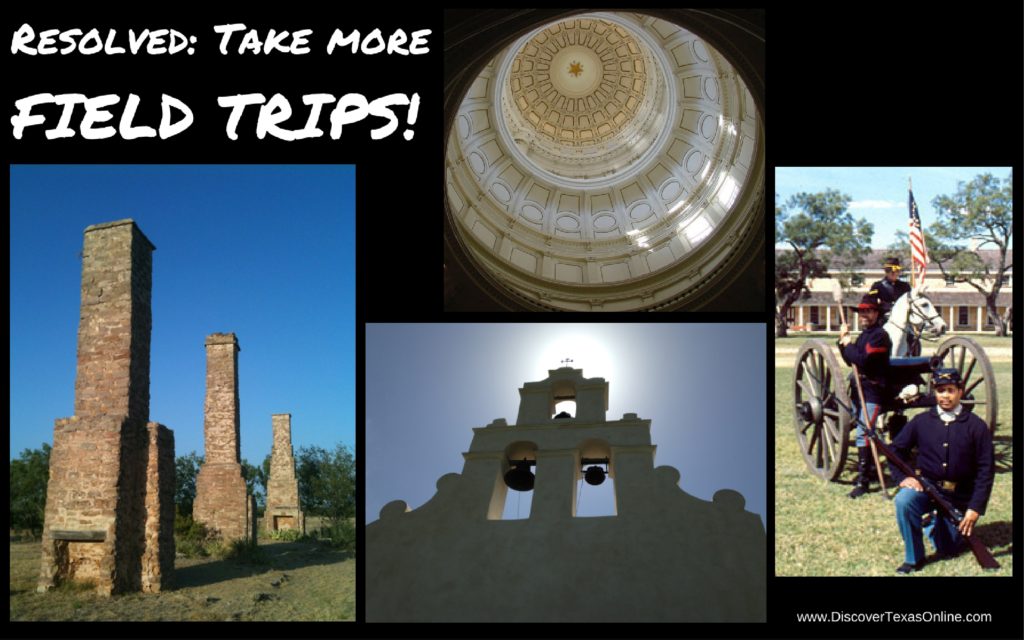 Field trips, unit studies, and real books are, IMHO, the only way to effectively teach history.
Field trips, unit studies, and real books are, IMHO, the only way to effectively teach history.
Intuitively, you probably already know this. Think about your own experience of learning history through textbooks and lectures. Was it like mine?
- To me, the people in my school history books had one thing in common–they were all dead. I had no connection to them, so they were not important to me. But when I hiked to a rock shelter where some nameless tribesman had left his handprint in red paint, a feeling swept over me. “I was here. Remember,” it seemed to say.
- I cannot remember one word of any lecture I ever heard in a history class before college, but even as a child I loved the historic homes in our town and noticed that they didn’t have indoor plumbing.
- The pictures in my textbooks were black and white and shades of gray, but when my family attended a play where scenes from history were reenacted, history came alive!
If you’re like me, most of the education you received in school was PASSIVE–which is possibly why I had the vague notion sometimes that education was something inflicted upon me. My presence was required as well as my cooperation in reading textbooks, listening to lectures, and quietly watching the occasional movie as a rare treat. But studies prove that we remember
- only 10% of what we read
- 20% of what we hear
- 30% of what we see (pictures and other visual images)
- and just 50% of what we see hear presented in a passive manner. (a movie, exhibit, or demonstration)
But when learning is ACTIVE–when we
- participate in a discussion
- tell others what we’ve learned
- participate in a dramatic presentation
- simulate a real experience, or
- do “the real thing”
retention jumps to 70%-90%!
Field trips provide an opportunity to connect with the people who made history–to walk where they walked, to experience a bit of their life, and to gain an appreciation for their goals and challenges. We participate in their drama, and we talk about what we’ve learned with others who are also excited.
That’s why at Discover Texas strives to make it easier to find and organize field trips that fit your family’s interests. In the Teacher Tips section of each volume of your course, you’ll find a guide that lists field trip suggestions all over that state that will relate to what your family is studying in that volume. On the Discover Texas website, those same field trips and more are organized in the archives by region rather than by topic. That way you can find places of interest wherever you are!
This year, resolve to take more field trips with yourThink how much more enjoyable this year will be if your students are excited and engaged in their study of Texas history!


